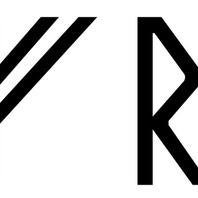
Viking Names
Alfrun
Alfrún was recorded in West Scandinavia (Norway and Iceland) as a mythological name. It is an Old Norse compound formed from the elements Alf- ‘elf’ and –rún ‘confidante’. It has been suggested that when used in a personal name it has the sense of ‘secret, wisdom’, associated with rúnar ‘runes’. There may be one attestation of Alfrún in a medieval church document from Lincolnshire. However, the form may alternatively represent the Old English female personal name, Ælfrūn.
Read More

Viking Names
Bui
An original byname Búi, from búa ‘to dwell’, was found in Norway and Iceland as a personal name and byname, but is rare there. In the form Bōi, later Bo, it is very common in Denmark and Sweden, where it appears in several runic inscriptions as bui and is found in the Latin forms Boecius and Boetius. It is possibly found in three Normandy place-names and it is potentially the first element in Boothorpe, Leicestershire.
Read More
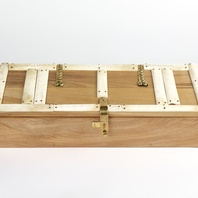
Viking Objects
Reproduction Wooden Box
A reproduction wooden box based on examples from Lincoln, York and Norway. The box is decorated with bone strips carved with a circular dot design. Boxes like this would have been fastened with padlocks
Read More

Viking Names
Snip
The Old Norse byname Snípr may be related to Modern Norwegian snipa ‘miser, unsociable person’. A single instance is recorded in Norway in 1335. It is also the first element of the place-name Snibstone, Leicestershire.
Read More
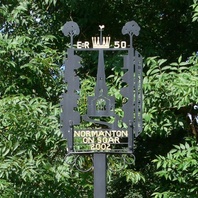
Viking Names
Normanton on Soar
Normanton on Soar, in the Rushcliffe Wapentake of Nottinghamshire, takes its name from the Old English ethnonym Norðman ‘Northman, Norwegian’ and the Old English element tun ‘farm, settlement’. There are several places of this name, predominantly in the East Midlands: five in Nottinghamshire, one each in Derbyshire, Leicestershire, Lincolnshire and Rutland, and one in the West Riding of Yorkshire. The affix Soar refers to the location of this Normanton on the River Soar. Traditionally, the place-name has been interpreted as referring to a settlement of Norwegians (in an area where most of the Scandinavian settlers were Danes). However, the exact implications of such a name are not yet fully understood and are the subject of ongoing work by Dr Jayne Carroll of the Institute for Name-Studies, University of Nottingham.
Read More
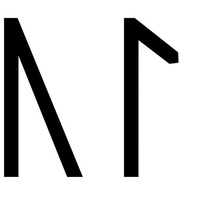
Viking Names
Kol
Kolr is a common male personal name in Norway and Iceland. It is probably related to the Old Norse noun kol ‘coal’ and is attested as the first element in the hybrid name Colston (Bassett) and (Car) Colston in Nottinghamshire. It is also attested as the first element in other Old Norse names, such as Kolbeinn.
Read More
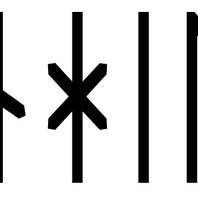
Viking Names
Gunnhild
Gunnhildr is a very common female name throughout the Viking world. In England, the name has a particularly wide geographical distribution that extends beyond the Danelaw and beyond the Viking Age. Its popularity was most likely influenced by its use in the Danish royal family in the eleventh century, when it was borne by an aunt, a daughter and a niece of King Cnut. The name is also the first element of the place-name Gunthorpe, Nottinghamshire.
Read More
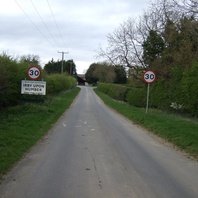
Viking Names
Irby upon Humber
Irby upon Humber, in the Bradley Wapentake of Lincolnshire, comes from Old Norse Íra,the genitive plural form of Íri ‘an Irishman; probably also a Norseman who had lived in Ireland’ and Old Norse by ‘a farmstead, a village’. The reference is probably to an isolated settlement of Norwegian vikings from Ireland, or perhaps Irishmen who came with the vikings to England. However, the exact implications of such a name are not yet fully understood and are the subject of ongoing work by Dr Jayne Carroll of the Institute for Name-Studies, University of Nottingham. Irby upon Humber is to distinguish the place from Irby in the Marsh, also in Lincolnshire.
Read More

Viking Names
Normanton
Normanton, in the Repton and Gresley Hundred in Derbyshire, takes its name from the Old English ethnonym Norðman ‘Northman, Norwegian’ and the Old English element tun ‘farm, settlement’. There are several places of this name, predominantly in the East Midlands: five in Nottinghamshire, and some in Derbyshire, Leicestershire, Lincolnshire and Rutland, and one in the West Riding of Yorkshire. Traditionally, the place-name has been interpreted as referring to a settlement of Norwegians (in an area where most of the Scandinavian settlers were Danes). However, the exact implications of such a name are not yet fully understood and are the subject of ongoing work by Dr Jayne Carroll of the Institute for Name-Studies, University of Nottingham.
Read More
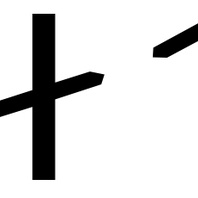
Viking Names
Kati
Káti is a fairly common male personal name in the Viking world, occurring in the inscriptions on at least six Swedish rune-stones. It is the first element in the place-name Caythorpe, Nottinghamshire. There are also several place-names in Lincolnshire which contain this name, including Cadeby and Caythorpe. The name may originally have been a nickname, as it means ‘the cheerful one’.
Read More
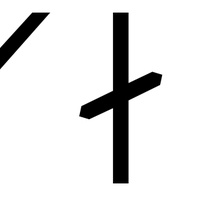
Viking Names
Skeggi
The male name Skeggi is sporadically recorded across Scandinavia and Iceland in the Viking Age and later. It forms the first element of Skegness, Lincolnshire, with Old Norse nes ‘headland’. The name possibly derives from the Old Norse word Skegg, meaning ‘beard’.
